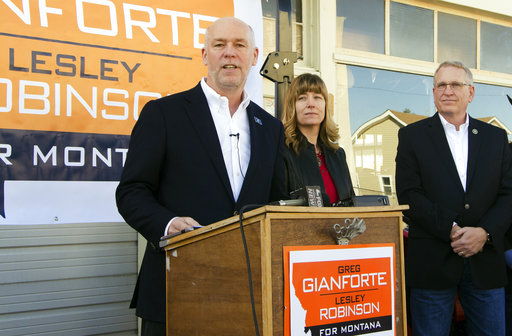
Politicians and the press
Hana Callaghan is the director of Government Ethics at the Markkula Center for Applied Ethics. Views are her own.
Our political process is based on the ethical ideal of creating an informed electorate so that voters can make knowledgeable choices on election day. It is a candidate’s duty to educate the voters about where he or she stands on policy issues so the voters can determine whether their positions and the candidate’s positions align. Indispensable in this process is the independent journalism of a free and fair press.
On Wednesday May 24, congressional candidate Greg Gianforte physically attacked Guardian reporter Ben Jacobs for persistent questions about the Congressional Budget Office scoring of the House health care reform bill. Gianforte went on to win the election, but the ethical issues raised by the incident are still worth considering.
Gianforte’s campaign stated that the altercation was the result of aggressive behavior by a “liberal journalist.” The statement read, "After asking Jacobs to lower the recorder, Jacobs declined. Greg then attempted to grab the phone that was pushed in his face. Jacobs grabbed Greg's wrist, and spun away from Greg, pushing them both to the ground. It's unfortunate that this aggressive behavior from a liberal journalist created this scene at our campaign volunteer BBQ."
Unfortunately for the campaign, the incident was witnessed by Fox reporter Alicia Acuna. She reported, “Gianforte grabbed Jacobs by the neck with both hands and slammed him into the ground behind him. Faith, Keith and I watched in disbelief as Gianforte then began punching the reporter. As Gianforte moved on top of Jacobs, he began yelling something to the effect of, "I'm sick and tired of this... To be clear, at no point did any of us who witnessed this assault see Jacobs show any form of physical aggression toward Gianforte, who left the area after giving statements to local sheriff's deputies."
The free press is a cornerstone of our democracy. Not only should candidates be open and available to reporters’ questions, public officials once elected should engage in open dialogue with those who investigate and report on the public’s behalf. Regrettably, there are those in the current political climate who would demonize the reporters who are serving the people’s interest in transparent government. This is a trend that cannot stand. As noted by James Madison in 1882, “A popular government without popular information or the means of acquiring it is but a prologue to a farce or tragedy or perhaps both.” Would-be public servants who are adverse to public inquiry should perhaps consider another line of work.
